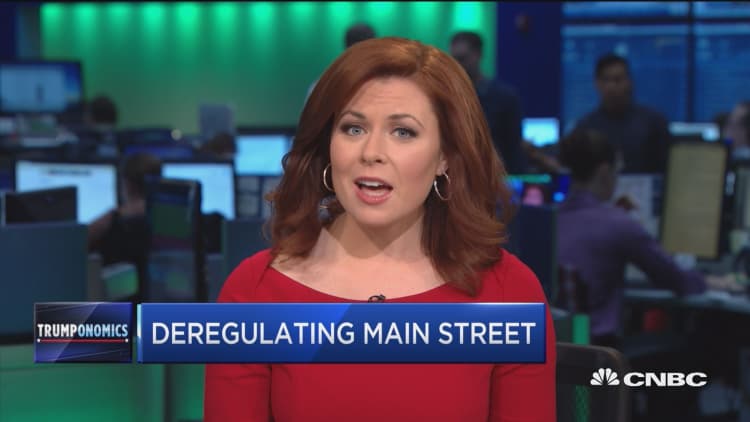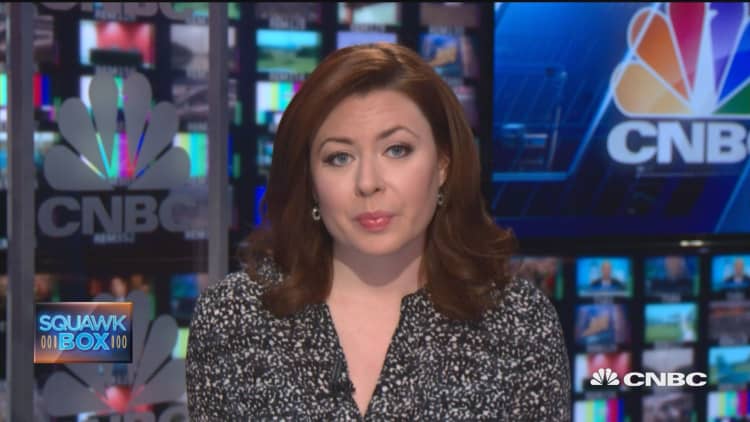Main Street's sunny outlook is holding up postelection, but positive feelings on the economy have yet to translate into real growth in sales or hiring for America's small businesses.
A new report from the conservative lobbying group the National Federation of Independent Business shows optimism remains at record-high levels, at 105.3 for the month of February. This represents a slight decline of 0.6 points from January's reading of 105.9, but remains high compared to the historic average of 98.
Postelection, small companies have reported a more positive outlook based on the belief that the Trump administration will enact more business-friendly policies and cut back on regulation.
But this month's report offered a more critical tone on the new regime's follow-through: "Optimism has not faded, but the enthusiasm has yet to be translated into an equally impressive increase in spending and hiring. This will require progress on the agenda that business owners voted for."
While there's been some movement in Washington, including President Trump's executive order on deregulation and the introduction of the GOP's plan to repeal and replace the Affordable Care Act, small businesses want to see more progress on both the health-care and tax-reform fronts, according to NFIB Chief Economist William Dunkelberg.
"Health-care costs and tax reform are always top issues for our membership," he said. "If action isn't taken on those issues, optimism will fade."
While job openings are at their highest levels since December 2000, finding skilled workers remains a top issue for 44 percent of businesses, which report few or no qualified workers to fill positions. As a result, more companies are raising wages.
A bright spot in the index: Capital spending among small-business owners rose two points to 62 percent. This is the second-highest reading since 2007, signaling companies may be starting to invest. Nearly half of all small-business owners expect better business conditions in the months to come.
Now it's time for Washington to follow through.
"It is clear from our data that optimism skyrocketed after the election because business owners anticipated a change in policy," NFIB President and CEO Juanita Duggan said in a statement. "The sustainability of this surge, and whether it will lead to actual economic growth, depends on Washington's ability to deliver on the agenda that small-business owners voted for in November."




